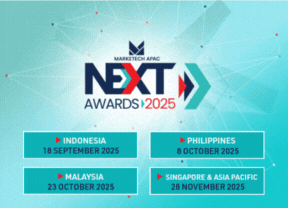Exploring the 2024 horizon reveals a dynamic transformation in finance, particularly in the sector of digital lending, as it continues to evolve in the midst of the digital age’s rapid expansion. The digital lending market in the Philippines is expected to reach $350 billion by the end of 2023, making it more than just a local boom but a vital element of a bigger regional trend. The estimated value of Southeast Asian smart cities by 2030 of $236.7 billion points out the interrelated progression.
As the Philippines’ digital lending sector grows, it is critical to recognize the untapped potential for future growth and advancement. Although financial institutions and government agencies are critical to the sector’s advancement, they must work together to implement policies that unlock the full potential of the Philippine fintech and digital lending landscape. The pursuit of novel ideas and the incorporation of emerging technology appear to be a vital point in ushering in the next phase of growth and ensuring the sector’s long-term existence.
Role of Financial Institutions and Regulators
Financial institutions and government authorities have played an important role in developing and stabilizing the digital lending landscape, creating a favourable climate for growth through coordinated legislative efforts and the implementation of industry standards. However, stakeholders in the growing digital lending sector must stay adaptable and aggressive in responding to emerging trends and challenges.
Role of Financial Institutions and Regulators
Financial institutions and government authorities have played an important role in developing and stabilizing the digital lending landscape, creating a favorable climate for growth through coordinated legislative efforts and the implementation of industry standards. However, stakeholders in the growing digital lending sector must stay adaptable and aggressive in responding to emerging trends and challenges.
A recent meeting between Mocasa and other online lending industry leaders with Securities and Exchange Commission (SEC) Commissioner Kelvin Lester K. Lee underscores a shared commitment to combat illicit online lending activities and establish professional debt collection practices. While specifics remain undisclosed, the collaborative spirit between online lending businesses and government regulatory bodies points to a bright future development direction.
Simultaneously, Senator Risa Hontiveros’ initiation of Senate Resolution 882, calling for an investigation into alleged abusive debt collection practices by online lending companies, signifies a proactive step toward addressing challenges. Reports from the Philippine National Police Anti-Cybercrime Group reveal unauthorized operations by foreign-based companies.
Despite persistent challenges, there is optimism that the ongoing regulatory efforts will lead to improved practices, ensuring a fair and positive environment for Filipinos dependent on small loans for daily expenses. Hontiveros emphasizes the importance of humane debt collection practices alongside financial accountability, fostering optimism for positive change in the industry.
The Vital Role of SMEs
Small and medium-sized enterprises (SMEs), widely regarded as the backbone of the Philippine economy, are at a crossroads. Their contribution to job creation and innovation must be recognized, with technology emerging as a vital aspect of SME success. The development of innovative tools, such as data-driven credit scoring systems and consumer data platforms, has become critical. Not only can these technologies improve access to financial resources, but they also foster confidence between SMEs and financial institutions. Intelligent automation streamlines processes even further, allowing SMEs to zero in
on strategic decision-making and value-added activities, assuring them resilience and success in an ever-changing economic setting.
Embracing Technological Advancements
The incorporation of technology into the digital lending sector is more than a passing fad; it is a requirement for long-term success. Future prospects necessitate investments in cutting-edge technology that not only speeds up loan operations but also improves risk management and client satisfaction. Intelligent automation, machine learning, and blockchain’s disruptive potential lay the groundwork for secure, efficient, and transparent financial transactions.
Addressing Cybersecurity Challenges
Opportunities are growing in the booming digital economy, but so is the surface area for cybersecurity problems. The predicted rise of the Southeast Asian smart city market to $236.7 billion by 2030 highlights the crucial need to prioritize the protection of vital sectors such as energy, insurance, health, and logistics. Protecting these sectors is no longer just a priority; it has become an absolute requirement. As online transactions and digital financing services become more dynamic, collaborative measures are required to protect digital infrastructure from potential cyber threats.
As a matter of fact, a cybersecurity firm recently discovered a network of misleading loan apps known as “SpyLoan,” which has over 12 million downloads in Southeast Asia, Africa, and Latin America. Despite fronting as useful financial services, these apps engage in data theft, extortion, and blackmail, accessing devices via a variety of means. This includes fraudulent websites and third-party app shops, where personal and financial information is collected and used for blackmail and harassment, including threats to reveal users’ intimate images and videos on social media.
Collaboration among financial institutions, regulators, and cybersecurity professionals emerges as a critical component in bolstering the digital resilience of the online lending ecosystem. Continuous improvements to encryption techniques, strong authentication procedures, and proactive monitoring systems are critical for recognizing and neutralizing cyber threats immediately. A united front against cyber vulnerabilities is poised to be important in the years ahead, ensuring the confidence and security of online financial transactions and generating a positive perspective for the sector’s future in the rapidly changing landscape of the digital lending business.
Conclusion
The Philippines’ digital lending market’s trajectory presents limitless opportunities. Despite substantial advances, the future requires ongoing collaboration, creativity, and adaptation. To catapult the digital lending sector into a new era of growth and prosperity, financial institutions, regulators, and SMEs must all work together to embrace technology advancements, strengthen cybersecurity measures, and face difficulties straight on. With these coordinated efforts, the Philippines has the ability not only to prosper as a global fintech trendsetter but also to establish new norms for financial innovation and inclusivity.

This article is written by Robin Wong, Chief Executive Officer, Mocasa
The insight is published as part of UPTECH MEDIA’s thought leadership piece, written within its repository of contributor articles.
UPTECH MEDIA welcomes partner article contributions about the latest technology trends in the Asia-Pacific region. For inquiries and submissions, please send them to [email protected].









